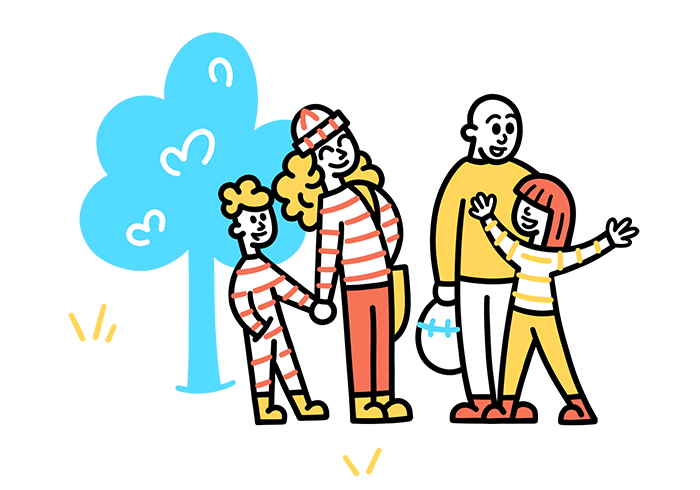Digital citizenship

Being a digital citizen means having the knowledge, skills and attitude needed to show responsible and respectful behavior when using technology.
Alongside the implementation of 1:1 learning devices in the City's schools, it is important to promote responsible internet use and digital citizenship awareness in all work with digital technology.
Digital citizenship curriculum
Here you can find Sæmundur Helgason's explanation of digital citizenship and an introduction to the Icelandic translation of Common Sense's digital citizenship curriculum. The content is available on the Kópavogur tablet project website. Feel free to use it with proper attribution.
- Digital citizenship curriculum
- Overview of information sources on digital citizenship
- Information and media literacy, practical guide
- Good online habits - key points to remember
Children's digital challenges
Everyone has devices – everyone's online – what now? Giving a child internet access comes with responsibility. Despite obvious benefits, there are risks. It's our job to teach children how to use the internet safely. We must understand the main challenges.
Kolbrún Hrund Sigurgeirsdóttir, principal of Reykjavík's Gender Equality Academy, educates us on the topic.
Information sources - education
Heilsuvera - Skjárinn og börnin
Á vef Heilsuveru má finna leiðbeiningar varðandi viðmið um skjánotkun barna og unglinga. Hverju þarf að huga að áður en barn fer á netið, aldursviðmið á tölvuleikjum og samfélagsmiðlum, skjá og svefn og fleira. Þá má einnig finna lista yfir atriði sem má skoða ef áhyggjur eru af skjánotkun til að aðstoða barn og ungmenni við að setja sér mörk og hvert leita má til að fá aðstoð.
Skjáviðmið til útprentunar:
SAFT - Society, Family and Technology
SAFT has run effective prevention programs for years.
Miðlalæsi.is - website on information and media literacy
A special education week on information and media literacy was held for the first time in Iceland in February 2023. All schools received an education package with 6 educational videos and teaching materials. The content is available on a website launched for the campaign. It also includes a summary of definitions for online terms.
Media literacy at the Media Committee - Parent education
Skúli B. Geirdal, project manager of Media Literacy at the Media Committee, educates parents and guardians about children and social media. The session is based on an extensive survey of primary and secondary school students in Iceland.
RÚV podcast - Children and youth online
The RÚV Society and Social Media podcast has episodes about children and online media.
Ombudsman for Children - Internet and social media
The Ombudsman for Children's website offers guidance for parents and guardians.
112 - Cybersecurity education, live chat with Red Cross volunteers
The 112 website offers cybersecurity education. It also provides live chat with 112 emergency dispatchers and Red Cross 1717 volunteers, anonymous for voice calls only.
What do you want to explore next?
- Mixtúra Creative and technology workshop
- Career development Education with Mixtúra
- Creative technology Creative education, creative submissions
- Digital learning Implementation of educational devices 1:1
- Data protection and e-learning Laws and regulations
- Software in schools Learning is fun
- Google Workspace Employee Guide A, B, C, D, E, F, Google
- Google Workspace Student Guide A, B, C, D, E, F, Google
- System administrators Have you tried turning it off and on again?
Mixtúra
Reykjavík's Department of Education & Youth's Creation & Information Technology Studio
Mixtúra is located at the University of Iceland’s School of Education.
Resource Lending Library opening hours:
Mondays from 1:30pm-3pm
Fridays from 9am-11am and 1:30pm-3pm
You can contact us by email: mixtura@reykjavik.is